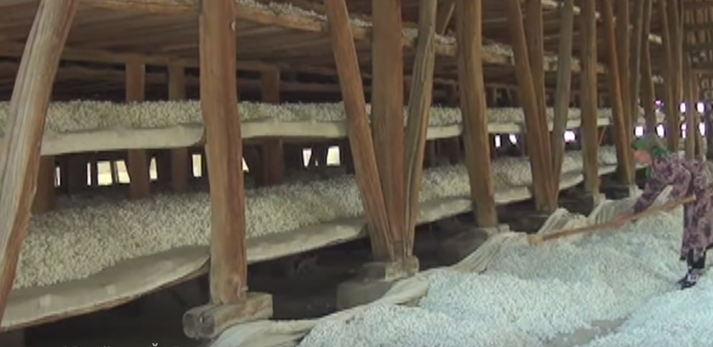The new report “Silk Loop for Uzbek Farmers” gives inside in Uzbek silk production and the wide use of forced labour in this industry.
Download Silk Loop for Uzbek Farmers Report as PDF
Скачать доклад “Шелковая петля для узбекского фермера” в формате PDF
Executive Summary
Uzbekistan, a leading producer of silk cocoons, relies on forced labor for their production, which violates the rights of farmers and public-sector workers and exploits the vulnerability of the rural poor. Uzbek farmers and public organizations must produce silk cocoons under coercion to fulfill government quotas and they must sell their cocoons to the government at the official procurement price, leaving them little or no profit, and in many cases debt. The government of Uzbekistan processes and sells some silk cocoons domestically but exports the majority to global markets for hard currency. The central government establishes cocoon production policy, prices, and annual silk production targets, and requires regional- and district-level officials to ensure targets are met. Local officials use coercion, including threatening farmers that they will lose their land, to force farmers and public-sector institutions to fulfill annual silk quotas. Farmers, in turn, oblige family members, including children, or pay local laborers to assist in the cultivation of silkworm cocoons to meet required production quotas and avoid penalties. The system relies on and exploits rural poverty as many farmers can only meet their production targets with the help of local workers who agree to assist in the arduous job of cocoon production in return for desperately needed items such as firewood and food. Directors of public institutions require their staff to cultivate silkworm cocoons or make payments to contribute to the institution’s quota and avoid fines and other repercussions.
Although the government promises to pay producers a government-set price for silk cocoons, in practice, the government usually only pays producers a small advance on the value expected from the producers’ quota of cocoons. We found that in many cases the government underpays or fails to pay producers upon delivery of cocoons. Silk production is expensive, labor-intensive, and not commercially viable for farmers and other producers. All farmers we interviewed said that the government forces them to cultivate silk cocoons, in violation of national and international laws prohibiting forced labor, and that they cannot refuse the government’s orders.





